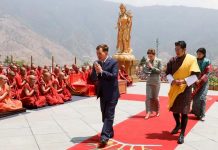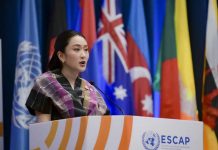
In Thailand, a growing debate centers on the extensive rights granted to migrants, both workers and non-workers, particularly regarding free healthcare and education for foreign children born in the country. Critics argue that the system is overburdening Thai taxpayers, who are covering the medical and education costs of migrants, including Myanmar nationals, under various state-funded programs.
One of the most controversial points is the “T.99 Rights Fund,” designed to provide healthcare to people awaiting nationality verification. However, many migrants, particularly from Myanmar, are exploiting this fund to receive free medical services and childbirth assistance at Thai hospitals located near the Thai-Myanmar border. This has led to an annual financial loss of over 1.5 billion Baht for the Thai Ministry of Health. Additionally, hospitals near the border report a yearly loss of 2.5 billion Baht due to unpaid medical bills by foreign patients.
Children born to migrants in Thailand immediately receive the “Golden Card,” a universal health coverage plan that entitles them to free healthcare for life. These children also have the right to attend school free of charge for up to 15 years. Critics claim that these provisions, particularly for children born to foreign nationals, are being abused, with some families coming to Thailand specifically to give birth and access these benefits without incurring any costs themselves.
Under the Thai education system, migrant children, whether born in Thailand or brought from neighboring countries, are entitled to free education from kindergarten through vocational school. This includes coverage for tuition fees, textbooks, school supplies, uniforms, and extracurricular activities, all funded by the Thai government. For example, a migrant child in elementary school receives 2,204 Baht per year for tuition, and those in higher levels receive even higher amounts. Some argue that this policy is being exploited, as it provides significant financial support to foreign families who do not contribute to the country’s tax base.
Meanwhile, legal migrant workers who participate in the country’s social security system, such as those under Section 33, have the same rights as Thai citizens, including healthcare, maternity benefits, and child allowances. However, there are concerns that the new increase in child allowances, set to take effect in January 2025, will primarily benefit migrant workers, as they tend to have more children than Thai nationals.
Manat Kosol, president of the Thailand Workers’ Organization, has stated that there are increasing calls to separate the social security fund between Thai and migrant workers to ensure fairness, given that the benefit usage between these two groups is markedly different.
Migrant workers are acknowledged as crucial to Thailand’s economy, and those who contribute to the social security system are entitled to the same benefits as Thai citizens. However, the burden of providing healthcare and education for foreign nationals, particularly those who do not contribute to the tax system, remains a contentious issue in Thai society.










